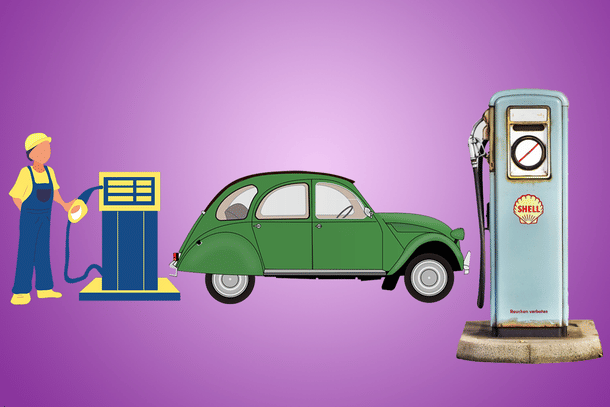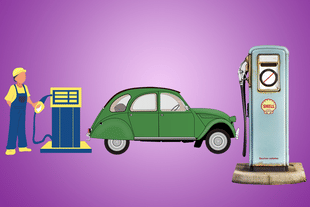Technology
Centre To Provide $3.5 Billion To Automakers In A Revised 'Clean Technology Scheme'
Bhaswati Guha Majumder
Sep 08, 2021, 05:52 PM | Updated 05:52 PM IST
Save & read from anywhere!
Bookmark stories for easy access on any device or the Swarajya app.


Over the years, environmentalists and many people around the world directly or indirectly have been pressurizing government agencies, companies and officials to take actions against the carbon emission issue. As a result, many automakers began to invest tons of funds into their electric vehicle production facility, supporting an alternative to fossil fuel vehicles.
In India, the government has reportedly decided to provide approximately $3.5 billion in incentives to automakers over five years as part of a revised scheme to boost the manufacturing and export of clean technology vehicles.
As reported by Reuters, the government's initial plan was to provide automakers and parts manufacturers around $8 billion to support mostly gasoline technology, with further incentives for electric vehicles (EVs).
The difference between traditional vehicles and EVs is well known, but when it comes to gasoline vs diesel, the latter “contains more energy per gallon of fuel than gasoline (generally resulting in higher fuel economy), more carbon per gallon (generally resulting in more CO2 emissions per gallon)” according to the United States Environmental Protection Agency (EPA).
Gasoline is not an alternative option, as air pollution can be caused by the vapours released when gasoline evaporates and the compounds created when gasoline is burned (carbon monoxide, nitrogen oxides, particulate matter and unburned hydrocarbons). Carbon dioxide, a greenhouse gas, is also produced when gasoline is burned.
However, the Reuters reports claimed that the initial plan has been revamped to focus on companies who produce electric and hydrogen fuel-powered vehicles, with the change coming as Elon Musk’s Tesla prepares to join India. The reason for the move was not clear initially, but as per the report, one of the sources indicated that since the focus had shifted to clean and innovative technology, fewer companies would be eligible for the incentives.
Between 2017 and 2018, India had 69,012 electric vehicles on the road. In 2018-19, the number climbed to 143,358 units, then to 167,041 units in 2019-20. India sees clean auto technology as critical to its plan to reduce its reliance on oil and reduce crippling pollution in its main cities while simultaneously reaching its Paris Climate Accord emissions targets.
Tata Motors is India's largest seller of electric cars, with rival Mahindra & Mahindra and motorcycle manufacturers TVS Motor and Hero MotoCorp announcing EV ambitions as well, while Ola Electrics also launched electric two-wheelers in August. But Maruti Suzuki, which is India's largest carmaker, has no plans to sell electric vehicles soon because it does not anticipate enough demand or affordability for consumers, according to its chairman.
However, the report noted that the initial allocation over the five-year term has been lowered, according to a government official with direct knowledge of the situation. But it was also said that up to $8 billion might be made available if the scheme is successful, initial monies are spent and certain requirements are met—were not specified by the source.
Details of the government’s scheme, which is part of India's larger $27 billion plan to recruit global manufacturers, might be released as soon as next week, sources told Reuters. According to one of them, enterprises that qualify for the revamped scheme will receive cashback payments equivalent to about 10 per cent to 20 per cent of their annual turnover for electric vehicles and hydrogen fuel cell automobiles.
Last year, At the CSIR-National Chemical Laboratory in Pune, the Council of Scientific and Industrial Research (CSIR) and KPIT successfully tested India's first hydrogen fuel cell prototype car, which was powered by an indigenously produced fuel cell stack.
As per early reports from this year, Hyundai Motor, Tata Motors, Toyota, Ashok Leyland and KPIT Technologies have all expressed interest in India's first and most ambitious hydrogen-powered fuel cell electric cars and buses project. Among them, India’s second-biggest carmaker Hyundai Motor cancelled plans to launch the country's first hydrogen-powered automobile due to lack of fuel.
However, the government is continuously pushing for cleaner fuels to reduce emissions, while the consumer interest towards environmentally friendly options is also moving gradually.
The latest report added that to qualify for the subsidies, automakers would have to commit a minimum of $272 million over five years. Auto parts manufacturers will receive incentives for producing clean car components and investing in safety-related parts and other innovative technologies such as sensors and radars used in linked vehicles.





